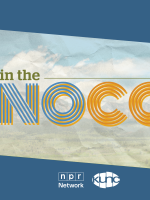When we shop for food, the labels on our groceries give us guideposts, such as how much fiber, protein or fat is in that loaf of bread or jar of peanut butter.
But more than a decade after Colorado legalized recreational cannabis, the potency labeling on products at your local marijuana dispensary may be far less helpful – and less reliable.
A new study from the University of Colorado Boulder found that almost half of cannabis flower products sold at dispensaries across the state are inaccurately labeled. Researchers found that flower products often contain less – or more – of compounds like THC and CBD than indicated on the label.
The findings raise questions about quality control within cannabis companies, as well as how much consumers should trust these labels, especially when they buy higher-potency marijuana. The results of the study were published earlier this month in the journal Scientific Reports.
Erin O’Toole spoke with one of the CU researchers, Jonny Lisano, to learn more about the study and what it means for consumer trust.
For more cannabis coverage, check out In The NoCo’s recent conversations that explored how long-term marijuana use might impact memory and a study of cannabis’ potential as a treatment for cancer and its symptoms.








